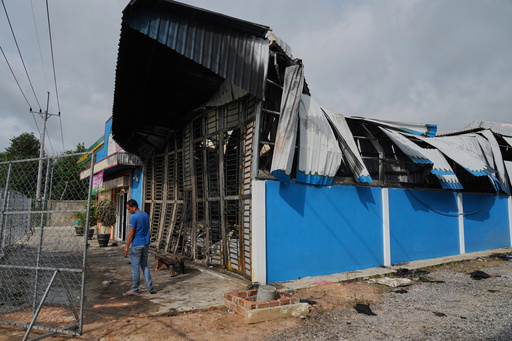Thailand and Cambodia recently recommitted to a fragile ceasefire on Wednesday, facilitated by China’s diplomatic intervention aimed at ending a series of border skirmishes. The ceasefire was initially brokered in Malaysia, set to commence at midnight on Monday. However, it quickly faced challenges as the Thai military accused Cambodia of multiple attacks early on Tuesday, claims which Cambodia denied. Reports persisted into Wednesday, citing gunfire exchanges, although heavy artillery remained unutilized.
The Thai Foreign Ministry issued a statement condemning what it labeled as an act of aggression by Cambodian forces, characterizing it as a violation of the ceasefire agreement. In a follow-up announcement, the Thai military detailed seven incidents of alleged truce breaches by Cambodian forces. The statement highlighted Thailand’s commitment to peace, restraint, and humanitarian values, warning that continued infractions would necessitate decisive actions.
Earlier, representatives from both nations appeared in good spirits at a meeting in Shanghai, smiling alongside China’s Vice Minister, Sun Weidong. Yet later, tensions surfaced during a high-level UN meeting, where Cambodian Ambassador Chhea Keo criticized the fragile state of peace at the border due to ongoing confrontations by Thailand. In response, Thai Ambassador Cherdchai Chaivaivid accused Cambodia of cross-border fire, calling for strict adherence to the ceasefire deal.
China’s involvement underscores its desire to maintain regional stability. At the meeting attended by officials from both countries, China reiterated its mediating role and applauded both nations for committing to peace. The Chinese Foreign Affairs Ministry indicated that this meeting was part of China’s broader diplomatic efforts to ease border tensions. Experts suggest that China is motivated by concerns over escalating conflicts near its borders, especially with ongoing issues in Myanmar.
The recent ceasefire agreement, reached with U.S. influence and under Malaysia’s auspices, came to light following negotiations between Cambodian Prime Minister Hun Manet and Thailand’s acting Prime Minister, Phumtham Wechayachai. Malaysia, the ASEAN chair this year, emphasized the ceasefire as crucial to restoring peace. The U.S., looking to leverage its diplomatic weight, had linked it to ongoing trade agreements. U.S. Secretary of State Marco Rubio affirmed America’s support for the ceasefire while expecting both nations to uphold their commitments.
Nevertheless, Thai military reports signaled a breach on Tuesday night in the contested area of Phu Makhuea within Sisaket province. The Thai government addressed its concerns about Cambodia’s adherence to the truce with Malaysia, the U.S., and China. Historical tensions have plagued the 800-kilometer border, with recent hostilities igniting after a landmine injured Thai soldiers, exacerbating political tensions within Thailand.
Amidst signs of possible stability, around 260,000 displaced individuals started returning home, though many remained in shelters, uncertain about future developments. Among those affected was Kanchana Sukjit, who fled with her dog and a few possessions. Her home, near the disputed Ta Muen Thom temple, positions her anxiously waiting for clear directions while stressing about potential military actions.


